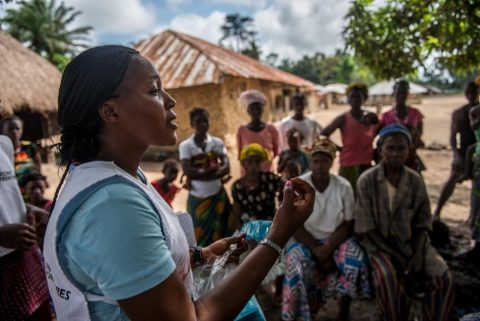Rosalind Smyth, Director of UCL Great Ormond Street Institute of Child Health, and Martin Elliott, UCL Professor of Cardiothoracic Surgery talk about the launch of the launch of the new publication platform UCL Child Health Open Research. It will be the first institute-focused publishing platform and allow any UCL Great Ormond Street ICH or other UCL researcher studying child health to publish with greater speed and transparency.
We hear from Phil Ward, Deputy Director of Research Services at the University of Kent, about how research quality is assessed in the UK including some of the problems with this and what alternatives there are to the norm
In honour of International Women in Engineering day on 23rd June, Chloe-Agathe Azencott is June’s featured Faculty Member of the Month. A research scientist at the Centre for Computational Biology of MINES ParisTech and Institut Curie (Paris, France) since 2013, her enthusiasm for problem solving and seeking new knowledge drew her into engineering.
With the rapid advance of technology and modern medicine the number of people becoming centenarians or even supercentenarians (living past 110) is increasing, with the United Nations predicting that we will see nine times as many people living for over a century by 2050. Eleanor-Rose Begg from F1000, summarises the research on aging and looks at the impact it has on us both physically and neurologically.
MSF Scientific Days this year was held at the Royal Society of Medicine in London. This conference brings together researchers from around the world to showcase their medical research. Similarly to last year, the conference was split into two parts: Medical Research and Innovation. Three members of the editorial team at F1000Research, Christina Tang, Theo Isaac and Molly Cranston, had the pleasure of attending MSF Scientific Days and provide a brief overview of what was discussed.
Corina Logan, University of Cambridge, recently published an Opinion Article about publishing choices that face researchers when decided how to disseminate their work. The article underwent open post-publication peer review and was also highlighted through our literature recommendation service F1000Prime. Clint Perry, Queen Mary University of London, is an Associate Faculty Member for F1000Prime and co-author of the recommendation. In this post, Corina and Clint discuss some of the points raised in Corina’s article about the peer review, open access and what changes are needed to ensure that publishers better serve the scientific community.
Fleur Braddick, Peter Anderson and Antoni Gual, members of the research network, ALICE RAP, published an opinion article to explain why it is time to re-think addictions and why we need to redesign the governance of drugs in Europe and globally.
Throughout May, there were many discussions and reports about the current uses and future possibilities of artificial intelligence (AI), with AI and health care appearing to be a major theme. In recognition of this, we are highlighting the top 3 recommended articles in the area of AI in this month’s blog post, which we have decided to rename, and for those Transformers fans out there, you will see the link to this month’s theme. We also include our usual top 3 articles for the month and our Hidden Jewels.
This in the first post from our new guest blogger Sarah Kearns, a PhD student at University of Michigan, where she gives her views on collaboration. She discusses what’s needed to create a collaborative environment and what barriers currently exist
John Sayer is a Clinical Professor of Renal Medicine, Newcastle University and runs the Renal Genetics Service and Family Renal Genetic clinic at Newcastle Upon Tyne Hospitals NHS Foundation Trust. He published a case report including both the clinical and patient perspectives to think about the consequences of analysing genes to discover the underlying cause of disease, and the impact such a genetic diagnosis has on the patient and their family.














